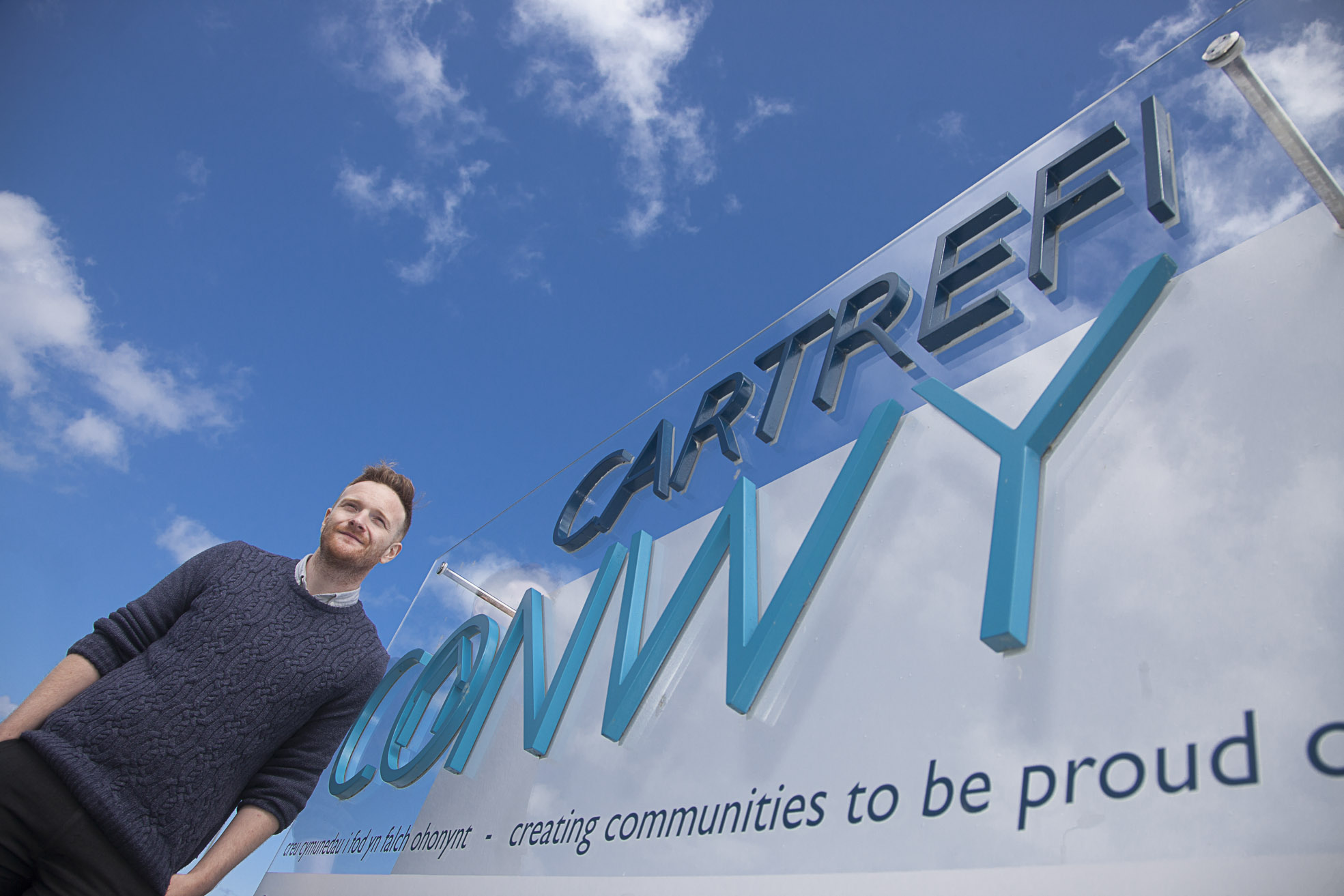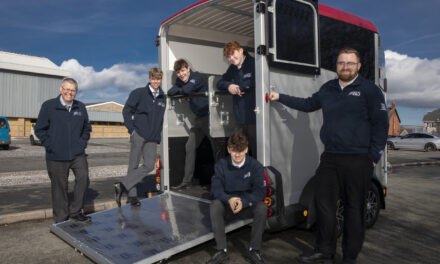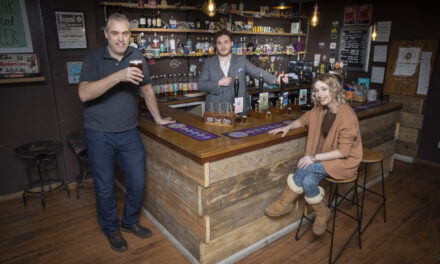A pioneering partnership in Denbighshire and Conwy has created 140 apprenticeships and attracted nearly £10 million in funding to combat fuel poverty.
The Local Service Board (LSB) for the two counties brought together public sector organisations like local authorities, the police, fire service and housing associations so they could join forces to work more effectively.
The group, chaired by Andrew Bowden, the chief executive of Cartrefi Conwy, will be replaced by a Public Service Board which will have added statutory powers.
The LSB has now produced its final report and Mr Bowden was proud of their string of achievements.
Among the highlights for Mr Bowden was their work in creating a total of 140 new apprenticeships across the two counties.
One of the success stories was Guto Williams, 28, who started as a creative and digital media apprentice at the Abergele HQ of housing association Cartrefi Conwy, and was named Apprentice of the Year at the Conwy Business Awards 2015.
He said: “Like many graduates, I found it tough going getting a long-term secure job in the industry. I saw the apprenticeship post at Cartrefi Conwy as an ideal way to get on the career ladder in a sector I wanted to work in and I have to say I haven’t looked back.
“I really enjoy the job whether it’s working on social media, managing the Cartrefi Conwy website, graphic design or marketing. The role is really diverse and I feel I’m allowed to develop ideas and implement changes which will increase social media awareness and improve overall performance.”
Another significant achievement was persuading LSB partners to stump up £6,000 to commission the Energy Saving Trust to undertake research,
As a result they were able to attract nearly £10 million in external funding, mainly via the Energy Company Obligation scheme, which paid for things like insulation and energy efficient boilers in private dwellings.
Another successful imitative was the Financial Inclusion Together project to tackle poverty in the two counties by developing coordinated services.
As part of the project, more than 1,000 front line staff from the partnership organisations, including the police and the fire service, were trained to offer advice and point people in the right direction for help if they were in financial difficulties.
Mr Bowden said: “Our aim was to identify where the public sector can make a difference collectively together can impact, be more penetrating, can deliver it more as a collective.
“I think the Conwy and Denbighshire LSB should be very proud of its achievements, particularly around the apprenticeships we created, about increasing financial awareness of across the public sector, and reducing fuel poverty in the two counties.
“We had a mandate to actually increase the range of apprenticeships that were available to the public sector and I’m glad to say this is something we achieved.
“It was also matching the skill set of young people with the needs of business and the public sector, to ensure there is no disconnect.
“I’m particularly proud of what we achieved in terms of financial inclusion. especially at a time of financial austerity.
“We needed to ensure that people had access to good advice, and that that advice would be useful to them on things like benefits that are available, or work opportunities, or just general community support.
“What we wanted to do was actually as a collective to use staff from organisations like the fire service and the police who perhaps don’t traditionally don’t actually see as delivering that type of service actually getting on board.
“That means if they they’re visiting a house or seeing someone at stress in their property they can actually signpost that person to gain appropriate help and assistance.
“A good example from a housing point of view would be that all our trades, electricians, and gas engineers and carpenters etc actually undertook this training so then when they’re visiting our tenant properties they could, where appropriate, signpost people to a credit union, or to other places where they can gain financial advice and support.
“Tackling fuel poverty was also a major priority for the LSB because, if we can reduce the amount of money that people are spending on fuel to help maintain the proper heat level in their homes, they’re going to be healthier as an individual and they’ll have more money in their pocket to actually pay for other things.
“We commissioned a short piece of work from the Energy Saving Trust and on the back of that £6,000 investment we’ve been able to draw down over £10 million of improvements to the two counties.
“That’s not only created additional local jobs but it’s also provided additional wall insulation, loft insulation, and boiler replacements, and also has been focused on some particularly rural areas as well.
“The projects created by the LDB have delivered and they’ve made a real difference to peoples’ lives.
“I believe in doing so we have created a great template for future collaboration via the new Public Service Board when it takes over.”











